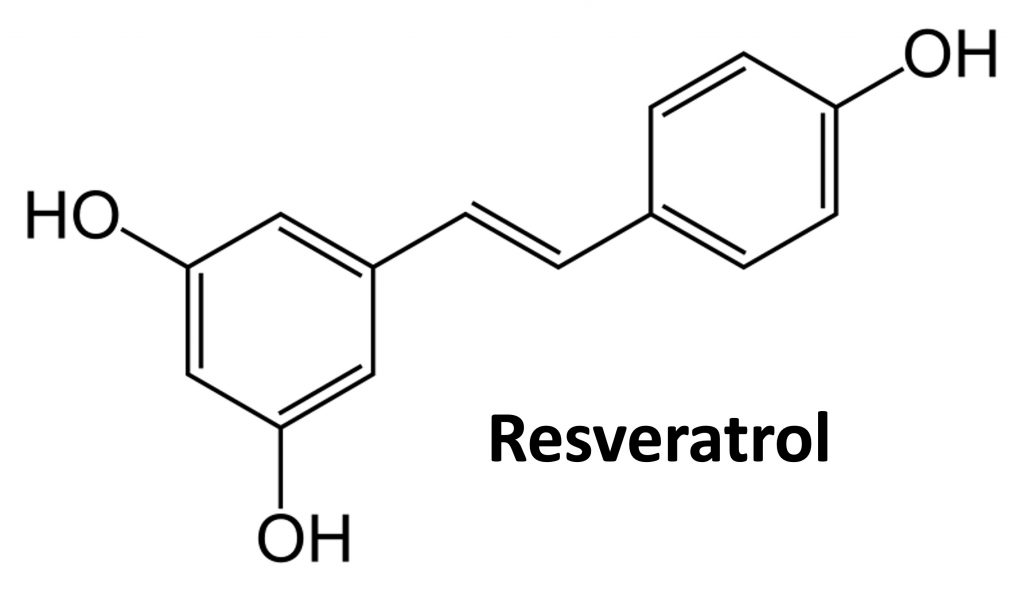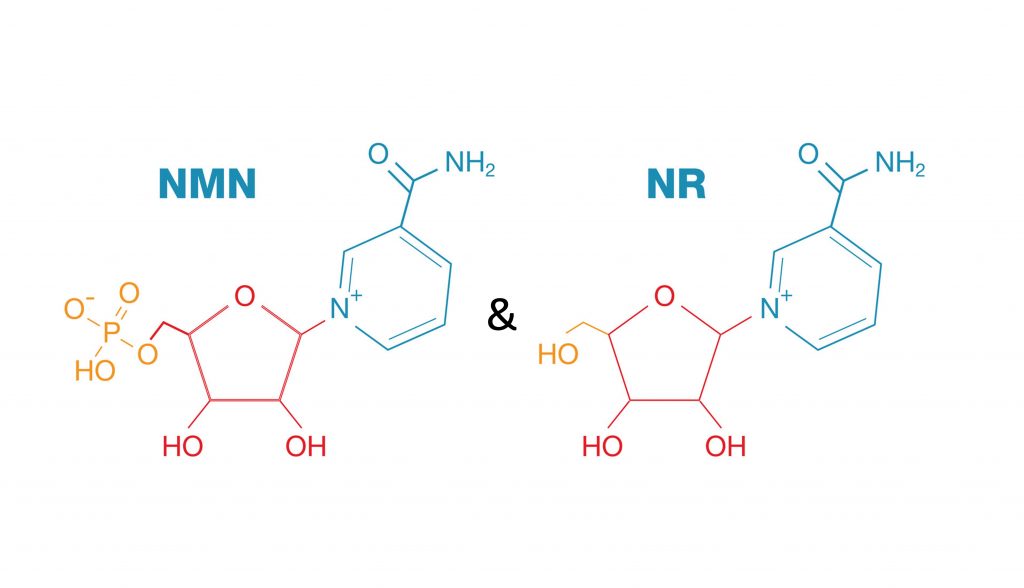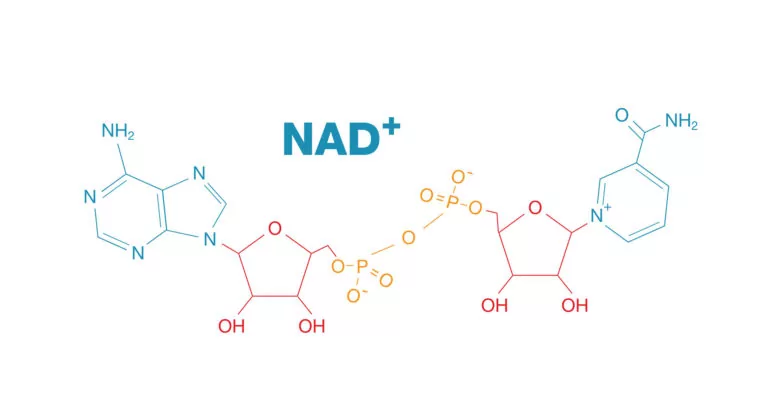Key Points:
- Huberman takes 400 to 800 mg of grapeseed extract a day for the potential vascular health benefits and not necessarily for its high levels of resveratrol.
- He takes 500 mg of NR and 1 to 2 g of NMN daily to improve his mental and physical energy.
- Huberman has done NAD+ intravenous (IV) drip therapy twice, which he said was uncomfortable.
Andrew Huberman is a professor of neurobiology and ophthalmology at Stanford School of Medicine. He also hosts the Huberman Lab podcast where he “discusses science and science-based tools for everyday life.” In an Ask Me Anything (AMA) episode of the podcast, Huberman was asked,
“There seems to be a lot of conjecture about resveratrol and whether or not it can extend lifespan. Could you please tell us your thoughts on this subject?”
Huberman then not only answers the question but also gives his general thoughts on the supplements NMN, NR, and NAD+ — supplements associated with longevity that can potentially extend lifespan.
Resveratrol

Huberman says there is “very little, if any, direct evidence that resveratrol can increase lifespan.” He does, however, say that resveratrol could “have some positive effects on the functioning of our cells” and may have certain health benefits. Indeed, he usually takes 400 to 800 mg per day of grapeseed extract, which is rich in resveratrol.
Huberman says he supplements with grapeseed extract mainly for its effects on vascular health and blood flow, but he wouldn’t put it on his top ten list. Still, he says the potential benefits of grapeseed extract outweigh its potential downsides, saying,
“I just [take grapeseed extract] as a kind of general insurance policy against a number of things. And it’s part of a small kit of supplements I take that fall into that category…”
This category includes supplements that appear to be very safe at the recommended dosages, have potentially positive effects on our cells, and that are fairly inexpensive. He then says,
“I do not take [grapeseed extract] for its potential impact on resveratrol and resveratrol-related pathways per se and certainly not to extend my lifespan.”
Nicotinamide Mononucleotide (NMN) and Nicotinamide Riboside (NR)

Huberman says that he takes 500 mg of NR per day and 1 to 2 g of NMN per day as a sublingual powder. His goal is to increase his nicotinamide adenine dinucleotide (NAD+) levels but emphasizes that this is not to prolong his lifespan. He says,
“There are some animal data suggesting that increasing NAD+ either by taking NR and/or NMN can increase lifespan. But frankly, that is not why I take NR and NMN.”
Highlighting that what he is saying is subjective, he says that taking NMN and NR gives him “a lot more sustained mental and physical energy throughout the day.” He says that now that he’s 48, he’s interested in doing anything that can safely maintain his youthful energy levels. He also mentions his specific protocol:
“I’ll take my NMN and NR sometime usually within about an hour or two of waking up and typically at least 30 minutes to two hours before my first meal, which for me usually arrives around 11:00 am.”
He goes on to say that the energy boost he gets from NMN and NR tapers off in a way that allows him to sleep at the end of the day. Furthermore, he mentions that he has previously stopped taking NR and/or NMN and has noticed a decrement in energy compared to when took the NAD+ precursors.
Huberman also tries to make clear that he has zero financial relationship to any company that manufactures NR. Additionally, while he used to be associated with a company that makes NMN, the FDA has made a ruling that NMN can longer be sold as a supplement, so he is no longer tied to an NMN manufacturer.
NAD+ Infusions

Huberman says that he has done NAD+ infusions twice now, taking anywhere from 500 to 1000 mg. He says,
“As most people experience when they do an NAD+ infusion, it’s pretty darn uncomfortable. In fact, so much so that a lot of people have to take anti-nausea med in order to get the NAD infusion.”
However, Huberman says he opted not to take anti-nausea medication because he tries to avoid additional medication if he can.
Huberman says he took the NAD+ infusions after feeling particularly rundown from getting over illnesses. Despite feeling uncomfortable during the infusion, he says that he felt much better after the infusion, saying,
“I felt much better in a number of different ways— improved sleep, improved vigor, coming off those illnesses. I felt much better. But again, there is no clinical trial exploring NAD+ infusion for the sake of vigor et cetera that I’m aware of.”
He later says,
“NAD+ infusions are expensive enough, inconvenient enough, and let’s just say uncomfortable enough that I don’t see myself doing them very often…”
However, he says in the future he may do the NAD+ infusions a couple times a year when he is feeling post-illness fatigue.
Controversy Over NMN and NR Supplements
Huberman mentions that there are still some questions about whether NMN or NR get into cells, while most people assume NAD+ infusions increase NAD+ levels within cells. He lists experts in the field like Dr. Charles Brenner, Dr. David Sinclair and Dr. Matt Kaeberlein “who debate the fine points” of NMN and NR supplementation boosting NAD+ levels in cells.
However, he thinks “the greatest debate is around whether or not increasing NAD+ levels in cells actually increases lifespan.” There is also debate around whether NR is more beneficial than NMN, and whether it’s too early to explore the benefits of these supplements and how they differ from each other.
Huberman also points out that supplements are indeed supplements and he thinks:
“Only by getting your light exposure, sunshine, movement, nutrition, stress modulation, social relationships, et cetera, correct should you even begin to consider supplementation because supplementation is just not at the foundation of mental health, physical health, and performance.”